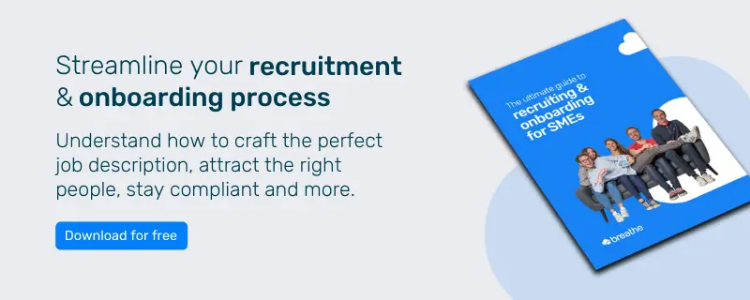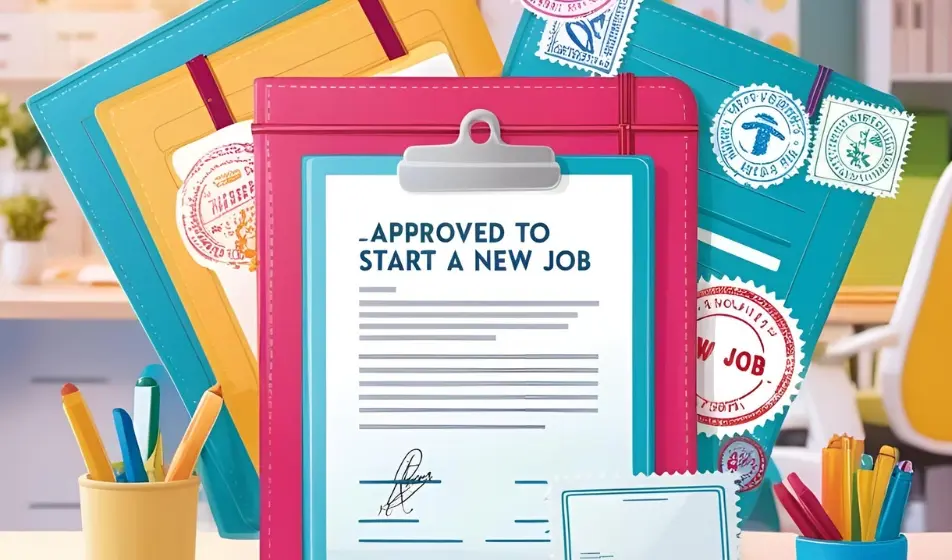Many companies are facing recruitment struggles with vacancies either remaining open or taking a long time to fill. With Brexit and the change to right-to-work regulations, more and more SME organisations are applying for sponsorship licences to increase the candidate pool for niche roles or - where there are skills shortages.
In this article, HRCentral Limited, outlines what a sponsorship licence is, why companies should consider having a licence and how Breathe can support sponsorship licence compliance with the secure storage of documents.
What is a sponsorship licence?
Why companies should consider having a licence
What does a sponsorship licence & visa application cost?
The licence application process
What is a sponsorship licence?
Simply put, a sponsorship licence allows UK companies to recruit from overseas and it's granted by the Home Office. Sponsorship licences are the legal mechanism by which UK companies can employ foreign nationals to work for them. They are issued by the Home Office and valid for 4 years. If you don't meet your responsibilities as a sponsor, you could face having your licence revoked.
Why companies should consider having a licence
Many companies are currently finding it difficult to recruit employees. CIPD’s Labour Marketing Outlook (February 2023) shows that 57% of employers have hard-to-fill vacancies and 29% anticipate significant problems over the next six months. Following Brexit and the change in right-to-work regulations, more and more companies are using sponsorship licences and visa applications to help fill these roles.
In the current recruitment market, a sponsorship licence is invaluable as it opens up the pool that companies can hire from, ensuring they get the right person for the role.
A sponsorship licence can be used for a variety of roles. If a company is looking to recruit for a niche, management or supervisor role, they shouldn’t have a problem being granted a licence. In essence, there are 2 basic criteria which need to be met:
-
Salary – £25,400 or the market rate for the role, whichever is higher
-
Skills – RQF level 3 (A-level and above)
What does a sponsorship licence and visa application cost?
-
Government fees: Application fee: £536 (small company), £1,476 for medium or large companies. Priority fee (optional): £500
-
Legal fees: up to circa £3500 dependent on the complexity of the application
It’s also important to be aware that there will be additional costs for the visa application process for individuals. In a nutshell, a 5-year visa for an employee at a small company will cost between £5,000 - £6,000, payable upfront. These costs are significantly more cost-effective than not having someone in post, and is circa the cost of one agency placement fee.
How employers can reduce visa application costs
It’s possible for employers to mitigate the costs for the visa application. Things employers can do, include:
-
Applying for a shorter length visa initially & then extending to spread the cost
-
Pass on some of the cost to the employee for the visa application. For example, if they leave within a certain time, they must pay back a percentage of their fees
-
Or asking the employee to pay upfront
The licence application process
The application is a two-stage process with an online application followed by a submission of supporting documents.
Companies need to fill out an application form which asks for high-level business information. There are some technical questions which have to be answered properly to ensure you receive the correct outcome for the licence.
Once submitted, the supporting documentation will need to be sent to the Home Office. The documentation required will vary depending on the type of company. This may include bank details, liability insurance, lease agreements etc.… but will vary depending on the company’s situation.
Applying for a licence can be a complicated process, we recommend working with a legal provider and HR Consultancy to help support and advise you throughout the application.
Sponsorship licence duties
Understanding your responsibilities as an employer with regard to Sponsorship licences might feel daunting but with the right professional support it can be a relatively easy process.
Once an employer has received their licence and recruited from overseas, there are a list of over 80 duties they need to adhere to.
Record keeping
Record keeping is an essential requirement for the administration of the sponsorship licence. It’s best practice for SME companies to maintain good record-keeping for their employees and their documentation. HR systems for maintaining personnel records must be accurate and particularly robust, and must be available for inspection at short notice in case of a Home Office compliance visit.
Breathe is the perfect tool for record keeping and can help support a Company’s sponsorship licence duties, as it will help the organisation to store and retain accurate records of employee details.
Breathe can also help with:
-
Documentation storage (e.g., contract of employment and job descriptions);
-
Storage of right-to-work documentation and tracking expiry dates and renewals;
-
Recording relevant qualifications (e.g., degree certificates);
-
Recording copies of Disclosure and Barring Service (DBS) check (if applicable).
Part of a Company’s sponsorship duties also include complying with relevant data protection laws when retaining personal data.
Looking for sponsorship support?
HRCentral works closely with immigration lawyers to help support our client’s sponsorship application processes and uses Breathe’s document storage capacity to securely store all documentation.

Author: Rebecca Woolmington, founder & Director of HRCentral
Rebecca Woolmington, founder & Director of HRCentral, worked in HR in the STEM sector prior to starting the company, but is now industry agnostic working with decision-makers and line managers to resolve their HR issues. HRCentral is based in the beautiful village of Goring on Thames.





